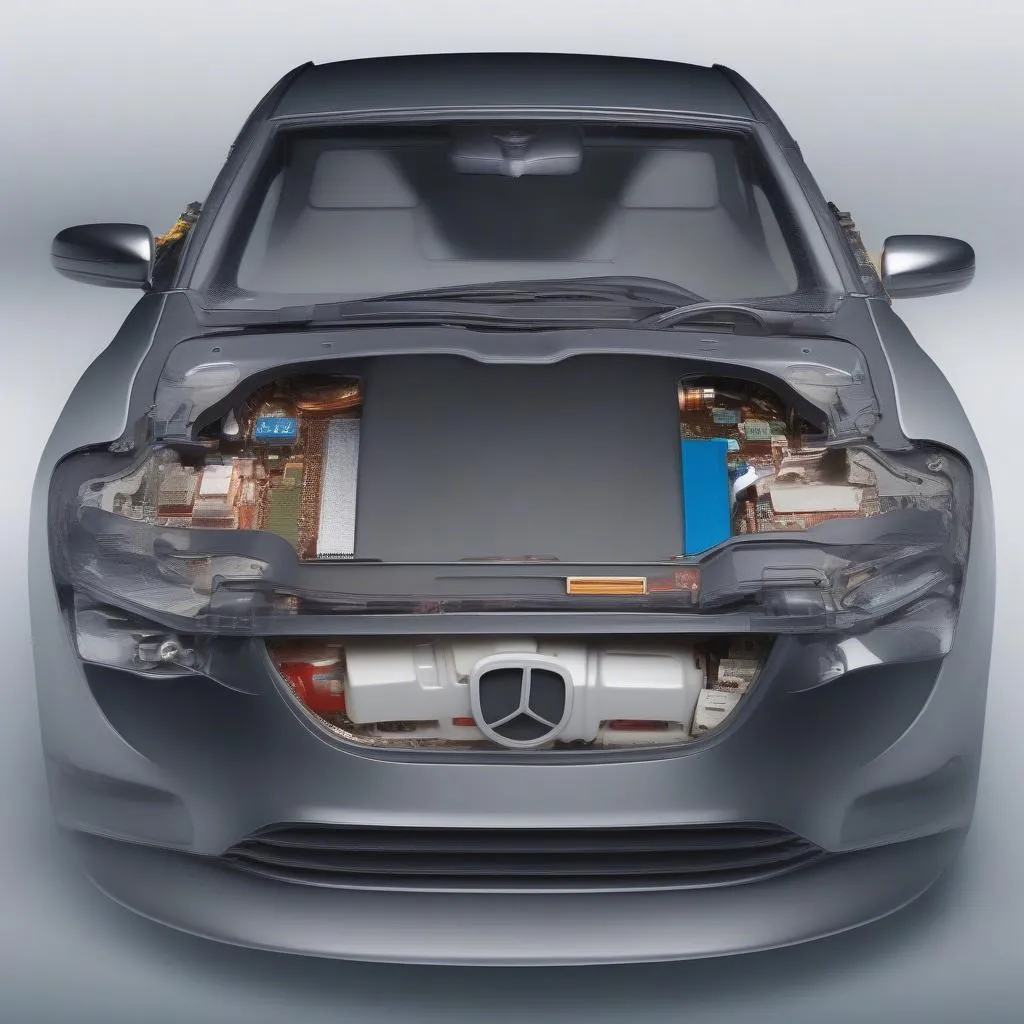The brake fluid warning light in your Mini Cooper is a serious issue that shouldn’t be ignored. This light indicates a potential problem with your braking system, requiring immediate attention to ensure your safety and prevent further damage. This article will guide you through the common causes, troubleshooting steps, and solutions for the brake fluid warning light in your Mini Cooper.
If you’re experiencing brake issues, check out helpful resources like information on Mini warning lights for brake pads. It’s always best to be informed about your vehicle’s specific warning systems.
Understanding the Brake Fluid Warning Light
The brake fluid warning light, often a red exclamation mark within a circle, illuminates when the brake fluid level in the reservoir is low. This can be due to several factors, from normal wear and tear to more serious leaks. Ignoring this warning can lead to brake failure, putting you and others at risk.
Common Causes of a Low Brake Fluid Level
- Worn Brake Pads: As your brake pads wear down, the brake calipers need more fluid to engage the brakes, lowering the fluid level in the reservoir. This is the most common cause and usually requires a brake pad replacement.
- Brake Fluid Leaks: Leaks can occur in various parts of the brake system, including the master cylinder, brake lines, and wheel cylinders. Leaks are a serious safety concern and require immediate professional attention.
- Damaged Brake Components: A malfunctioning master cylinder or ABS system can also contribute to low brake fluid levels.
Troubleshooting the Brake Fluid Warning Light
- Check the Brake Fluid Level: Locate the brake fluid reservoir (usually a translucent plastic container) and check the fluid level. It should be between the minimum and maximum lines.
- Inspect for Leaks: Carefully examine the brake lines, calipers, and master cylinder for any signs of fluid leaks. Look for wet spots, drips, or stains.
- Check Brake Pad Thickness: Visually inspect your brake pads through the wheel spokes. If they appear thin, they likely need replacement.
For more insights into brake warning lights, you can refer to the information available on brake warning light Mini. Understanding the different warning lights in your Mini can help you diagnose problems effectively.
Solutions for the Brake Fluid Warning Light
- Top Up Brake Fluid: If the fluid level is low but there are no leaks, carefully add the correct type of brake fluid specified in your Mini Cooper’s owner’s manual.
- Brake Pad Replacement: If the brake pads are worn, they need to be replaced. This should also resolve the low fluid level if there are no leaks.
- Professional Repair: If you detect a leak or suspect a problem with the master cylinder or ABS system, take your Mini Cooper to a qualified mechanic immediately.
When to Seek Professional Help
- You detect a brake fluid leak.
- The brake pedal feels spongy or soft.
- You hear grinding or squealing noises when braking.
- The brake warning light remains on after topping up the fluid.
You might find helpful information related to other car models, such as the 2009 Nissan Altima brake warning light or the 2008 Dodge Grand Caravan brake warning light, which can offer a broader perspective on brake system issues. Although different makes and models have their specifics, the underlying principles are often similar.
Conclusion
The brake fluid warning light in your Mini Cooper is a crucial safety indicator. Addressing the underlying issue promptly can prevent serious brake problems and ensure your safety on the road. By understanding the common causes and troubleshooting steps, you can take the necessary action to keep your Mini Cooper’s braking system in optimal condition. Remember, if you’re unsure about anything, consulting a qualified mechanic is always the safest course of action. Don’t ignore the brake fluid warning light in your Mini Cooper.
FAQ
- What type of brake fluid should I use in my Mini Cooper? Consult your owner’s manual for the specific type of brake fluid recommended for your model.
- Can I drive my Mini Cooper with the brake fluid warning light on? It’s extremely dangerous to drive with the brake fluid warning light on. It indicates a potential brake failure risk.
- How often should I check my brake fluid level? Check your brake fluid level at least once a month as part of your regular vehicle maintenance.
- How much does it cost to replace brake pads on a Mini Cooper? The cost varies depending on the model and where you get the work done, but it typically ranges from $150 to $300 per axle.
- What is the lifespan of brake pads on a Mini Cooper? Brake pad lifespan depends on driving habits and conditions, but they typically last between 30,000 and 70,000 miles.
- How can I prevent brake fluid leaks? Regular brake system inspections and maintenance can help prevent leaks by identifying and addressing potential problems early.
- Is it safe to top up brake fluid myself? Yes, but ensure you use the correct type of fluid and avoid overfilling the reservoir. If you’re unsure, consult a mechanic.
You can find more resources on Mini R56 brake warning light for specific information related to this model.

